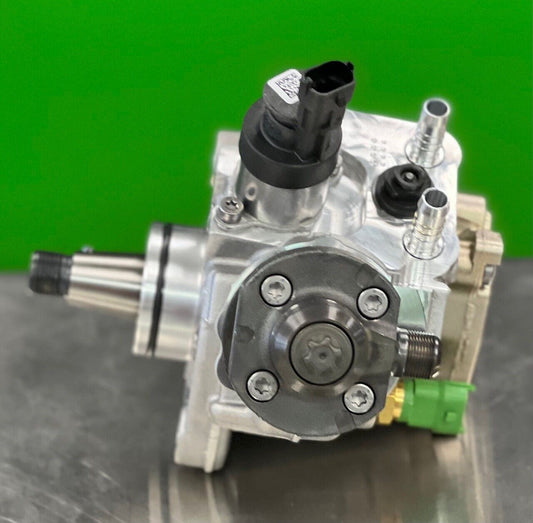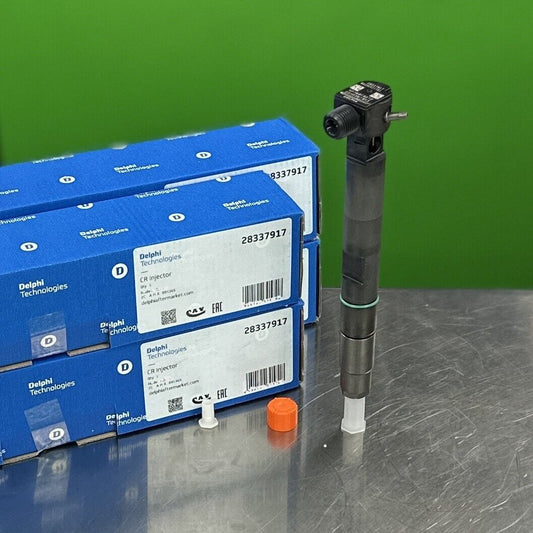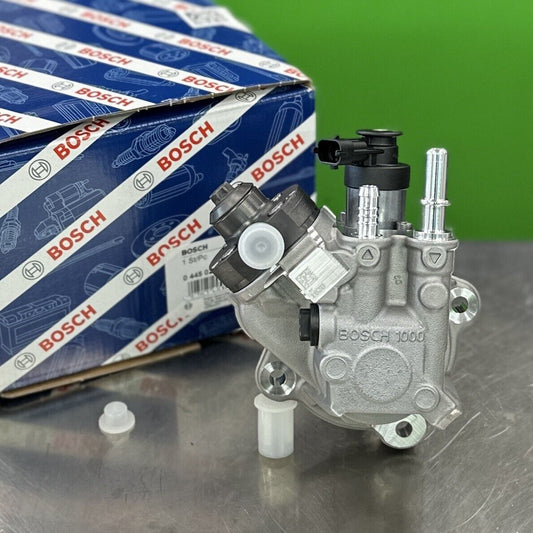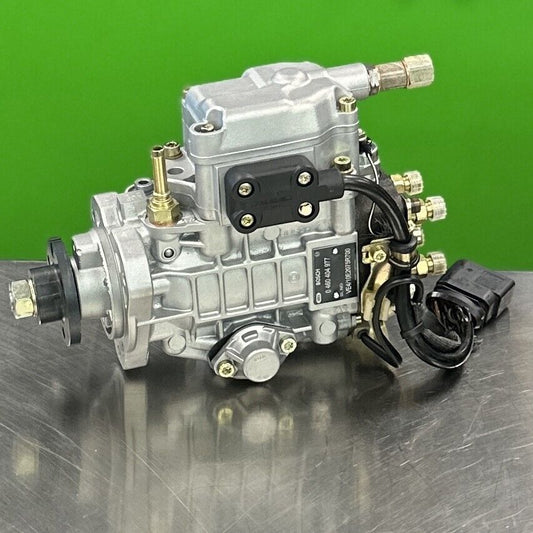Fuel Injector Technology: Past, Present, and Future
Fuel injector technology has come a long way since its inception, evolving through the years to meet the demands of the automotive industry. From the early mechanical fuel injection systems to the sophisticated electronic fuel injection technology of today, the journey of fuel injectors is a testament to innovation and progress. As we delve into the past, present, and future of fuel injector technology, we uncover a fascinating narrative of advancement and transformation.
Evolution of Fuel Injectors
The evolution of fuel injectors has been a fascinating journey through the annals of automotive history. In the early days, fuel delivery systems relied on basic mechanical processes to ensure that the engine received the necessary fuel for combustion. These early fuel injectors were rudimentary in design, often prone to inefficiencies and inconsistencies in fuel delivery.
As technology progressed, so did the evolution of fuel injectors. The transition from mechanical fuel injection to electronic fuel injection marked a significant milestone in the automotive industry. Electronic fuel injection systems revolutionized the way fuel was delivered to the engine, offering precise control over fuel flow and injection timing.
The advent of electronic fuel injection brought about improved engine performance, fuel efficiency, and reduced emissions. With the ability to precisely meter the amount of fuel injected into the combustion chamber, electronic fuel injectors optimized engine operation for better power output and cleaner exhaust emissions.
Modern fuel injectors have continued to evolve, incorporating advanced features such as multi-point injection and direct injection systems. Multi-point injection systems deliver fuel to each cylinder individually, optimizing fuel distribution for improved combustion efficiency. Direct injection systems, on the other hand, inject fuel directly into the combustion chamber, further enhancing fuel atomization and combustion control.
Today, fuel injectors have become integral components of modern engines, playing a crucial role in optimizing performance, fuel economy, and emissions control. The evolution of fuel injectors from simple mechanical devices to sophisticated electronic systems has paved the way for enhanced engine efficiency and overall vehicle performance.
Current Advancements in Fuel Injection
When it comes to the current advancements in fuel injection technology, the automotive industry is experiencing a revolution. Gone are the days of traditional carburetors; now, we are witnessing cutting-edge innovations that are enhancing both performance and efficiency. One of the most significant advancements is the widespread adoption of direct injection systems.
Direct injection systems have transformed the way fuel is delivered into the engine cylinders. By injecting fuel directly into the combustion chamber at high pressure, these systems optimize fuel atomization and distribution, resulting in improved power output and fuel efficiency. This precise delivery of fuel allows for better control over the combustion process, leading to cleaner emissions and enhanced overall performance.
Moreover, variable valve timing technology has become a game-changer in fuel injection systems. By adjusting the timing of the opening and closing of the engine's intake and exhaust valves, variable valve timing optimizes the engine's airflow and fuel intake based on driving conditions. This dynamic control not only boosts performance but also maximizes fuel efficiency, making vehicles more responsive and environmentally friendly.
Another notable advancement in fuel injection technology is the integration of electronic controls. Electronic fuel injection systems have replaced mechanical systems, offering more precise fuel delivery and real-time adjustments based on sensor feedback. This digital control allows for on-the-fly optimization of fuel mixture, timing, and other parameters, resulting in smoother engine operation and improved overall performance.
Furthermore, advancements in materials and manufacturing techniques have led to the development of more durable and efficient fuel injectors. High-quality materials, such as stainless steel and advanced polymers, ensure longevity and reliability, even under extreme operating conditions. Additionally, innovative manufacturing processes, such as 3D printing, enable the production of intricate injector designs that optimize fuel delivery and combustion efficiency.
In conclusion, the current advancements in fuel injection technology are driving the automotive industry towards a more sustainable and efficient future. With direct injection systems, variable valve timing, electronic controls, and advanced materials, vehicles are becoming more powerful, responsive, and environmentally friendly than ever before. As technology continues to evolve, we can expect even more exciting innovations that will shape the future of fuel injection systems.
Future Trends in Fuel Injector Technology
As we look ahead to the future of fuel injector technology, exciting trends and advancements are on the horizon. Manufacturers and researchers are constantly pushing the boundaries of innovation to meet the evolving needs of the automotive industry. One of the key areas of focus for the future of fuel injectors is precision control. By enhancing the accuracy and efficiency of fuel delivery, engines can achieve optimal performance while minimizing waste.
Moreover, the compatibility of fuel injectors with alternative fuels is a crucial aspect of future development. With the growing interest in sustainable energy sources, fuel injectors must be adaptable to a variety of fuel types, including biofuels and hydrogen. This versatility will not only reduce dependency on traditional fossil fuels but also contribute to a greener and more environmentally friendly automotive sector.
Another significant trend in fuel injector technology is the ongoing efforts towards sustainability. Manufacturers are exploring ways to make fuel injectors more energy-efficient and eco-friendly. This includes the development of recyclable materials, energy-saving mechanisms, and reduced emissions during the fuel injection process. By prioritizing sustainability, the future of fuel injectors aims to align with global initiatives for a cleaner and healthier planet.
Furthermore, advancements in digitalization and connectivity are shaping the future of fuel injector technology. Integrated sensors and smart systems allow for real-time monitoring and adjustment of fuel injection parameters. This level of connectivity not only enhances engine performance but also enables predictive maintenance and remote diagnostics, leading to improved reliability and cost-effectiveness.
In conclusion, the future of fuel injector technology is a dynamic landscape of innovation and progress. By embracing precision control, alternative fuels compatibility, sustainability efforts, and digital connectivity, the automotive industry is poised to witness remarkable advancements in fuel injection technology. These future trends hold the promise of more efficient, cleaner, and high-performing engines, driving the evolution of transportation towards a more sustainable future.
Challenges and Opportunities
When it comes to fuel injector technology, there is no shortage of challenges that must be overcome to drive innovation and progress. One of the primary hurdles facing the industry is the ever-increasing pressure to meet stringent emissions regulations. As environmental concerns continue to grow, manufacturers are tasked with developing fuel injectors that not only deliver optimal performance but also minimize harmful emissions. This balancing act requires a delicate blend of precision engineering and cutting-edge technology.
Furthermore, the demand for greater fuel efficiency poses a significant challenge for fuel injector technology. As consumers and regulators alike push for vehicles that are more environmentally friendly and economical to operate, fuel injectors must constantly evolve to meet these demands. This pressure to improve efficiency without sacrificing power or performance drives continuous innovation in the field.
Despite these challenges, the landscape of fuel injector technology is ripe with opportunities for growth and advancement. With the rise of electric vehicles and alternative fuel sources, there is a growing need for fuel injectors that are compatible with a variety of propulsion systems. This opens the door for manufacturers to explore new technologies and materials that can enhance the efficiency and versatility of fuel injectors.
Moreover, the push towards sustainability in the automotive industry presents an opportunity for fuel injector technology to shine. By developing injectors that are more efficient, durable, and environmentally friendly, manufacturers can not only meet current regulations but also lead the way in creating a more sustainable future for transportation.
In conclusion, while fuel injector technology may face its fair share of challenges, the opportunities for growth and innovation are equally abundant. By tackling issues such as emissions regulations and fuel efficiency demands head-on, manufacturers have the chance to revolutionize the way we power our vehicles and pave the way for a more sustainable future.
```htmlFrequently Asked Questions
-
What is the history of fuel injector technology?
The evolution of fuel injectors dates back to early mechanical systems used in the automotive industry. Over time, advancements led to the development of modern electronic fuel injection technology, revolutionizing the efficiency and performance of vehicles.
-
What are the current advancements in fuel injection?
Current innovations in fuel injection technology include direct injection systems and variable valve timing. These advancements aim to enhance engine performance, increase fuel efficiency, and reduce emissions for a more sustainable driving experience.
-
What can we expect in the future of fuel injector technology?
The future of fuel injectors is promising, with upcoming trends focusing on precision control, compatibility with alternative fuels, and sustainability efforts. These developments aim to address environmental concerns, improve engine efficiency, and meet evolving industry standards.
-
What are the challenges and opportunities in fuel injector technology?
Fuel injector technology faces challenges such as stringent emissions regulations and the demand for greater fuel efficiency. Despite these obstacles, there are ample opportunities for further enhancement and innovation in the field, paving the way for more efficient and eco-friendly vehicles.



